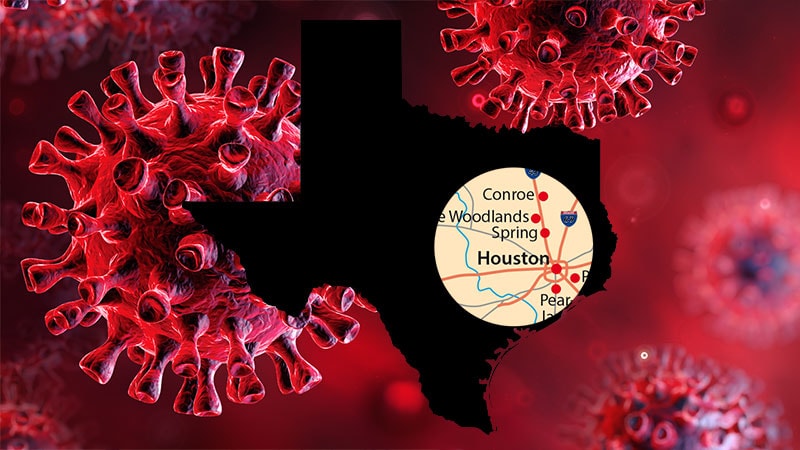
Editor’s note: Discover the most recent COVID-19 news and guidance in Medscape’s Coronavirus Resource Center
.
A group of scientists in Houston, Texas, has actually sequenced the genomes of SARS-CoV-2 separated from 20,400 COVID-19 clients dealt with at a single health system there, and they’ve found cases of all the major variations that public health professionals state might increase the transmission of the infection or the intensity of infection.
The finding came as Texas Gov. Greg Abbott revealed he would raise the state’s mask required and “open Texas 100%.”
Houston is the 4th largest city in the United States, with more than 7 million people.
” This is a really outstanding piece of work,” stated Keith Jerome, MD, PhD, head of the Virology Division at the University of Washington, in Seattle. “It is among the most thorough looks that we have actually had of the viruses in a provided location throughout the United States.”
The genomes sequenced in the research study represent about 4%of all the infections in the Houston location over the previous year, enough to offer a “deep and realistic” photo of the situation there, said Jerome, who was not associated with the research.
” We can recognize variations even when they’re at an extremely low frequency in our population. Although we’re the first city in the country to have actually reported all of these variants, it’s most likely that there are other cities in the nation that have all these variants and simply aren’t aware,” said research study author Wesley Long, MD, PhD, medical director of diagnostic microbiology at Houston Methodist Healthcare Facility.
The genomes evaluated from the research study go back to March2020 The Houston Methodist health system is part of a global network of genome sequencing laboratories called the Artic ARTIC Network, which is constantly on the lookout for brand-new viral variants.
The preprint research study, which posted on Tuesday, reports 23 cases of the B. 1.1.7 alternative, which was first determined in the United Kingdom; 2 cases of the B. 1.351 version, which was initially reported in South Africa; and four of the P. 1 variant, which developed in Brazil.
The B. 1.1.7 variant is more contagious than the earlier variations of the virus and might trigger more serious illness. The variants from South Africa and Brazil have actually altered in manner ins which allow them to avert resistance from the vaccines or previous infection. These three have actually been acknowledged by public health authorities around the world as “variations of concern.”
In addition, researchers found 162 clients contaminated with the B. 1.429 or B. 1.427 variations from California. These have been identified “variants of interest” since they may have altered in manner ins which assist them spread more easily or evade immune protections. The researchers found 39 individuals who were infected with the P. 2 variant from Brazil, which is also being closely watched for issues.
” I ‘d say they started actually appearing in December,” Long says. The majority of Houston’s alternative cases came in January and February.
Long states that up until now, the number of versions they have actually seen is so low that those variants have not impacted the variety of cases they’ve seen. The private investigators have no proof that the variations cause more severe signs.
However he says they’re viewing closely to see whether the variations will compound the fallout from the region’s current devastating snow and ice storm.
” Although individuals weren’t able to go to work and weren’t able to go to school, a lot of individuals were cohabitating with various groups of people,” Long said.
Viruses alter all the time.
” Individuals need to understand that the variants, although concerning, are not wonderful,” Long says. The very same public health procedures that have actually been working ought to still work to assist keep the infection under control: remaining at home, cleaning hands often, restricting gatherings, and using masks.
” We still require to use masks,” he stated. “We still need to socially distance.”
For more news, follow Medscape on Facebook, Twitter, Instagram, and YouTube.
.
No comments:
Post a Comment